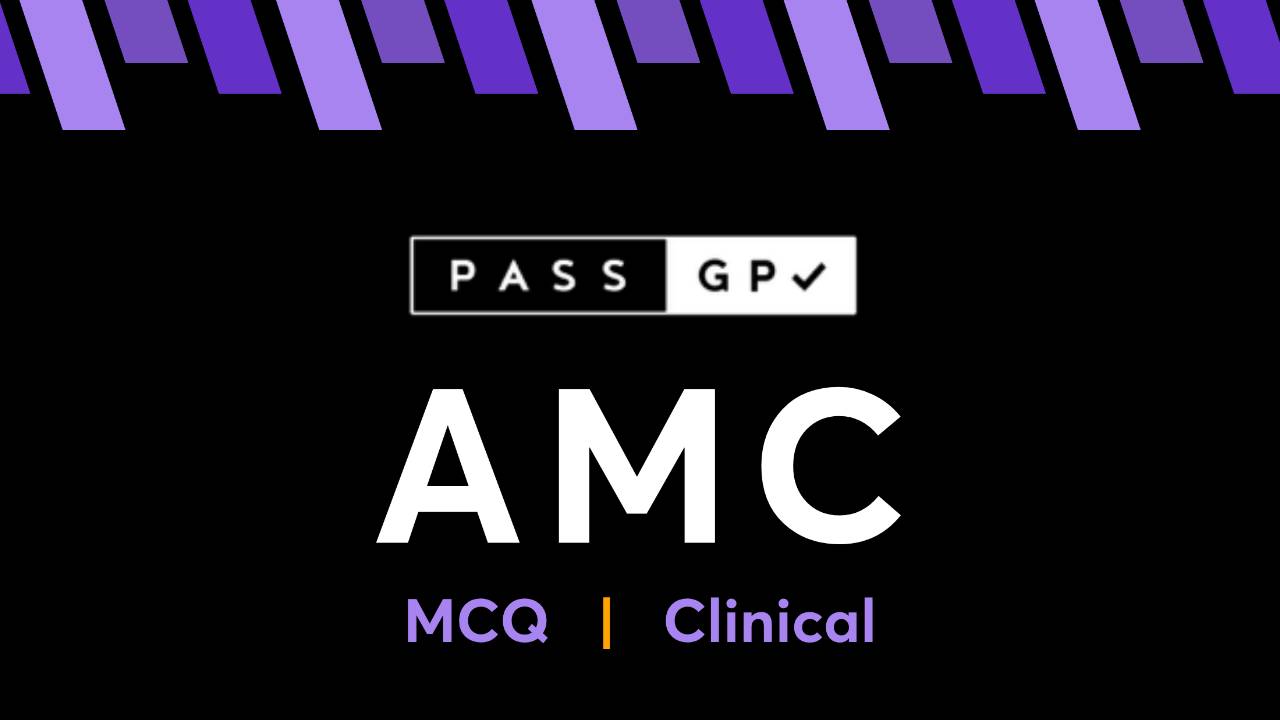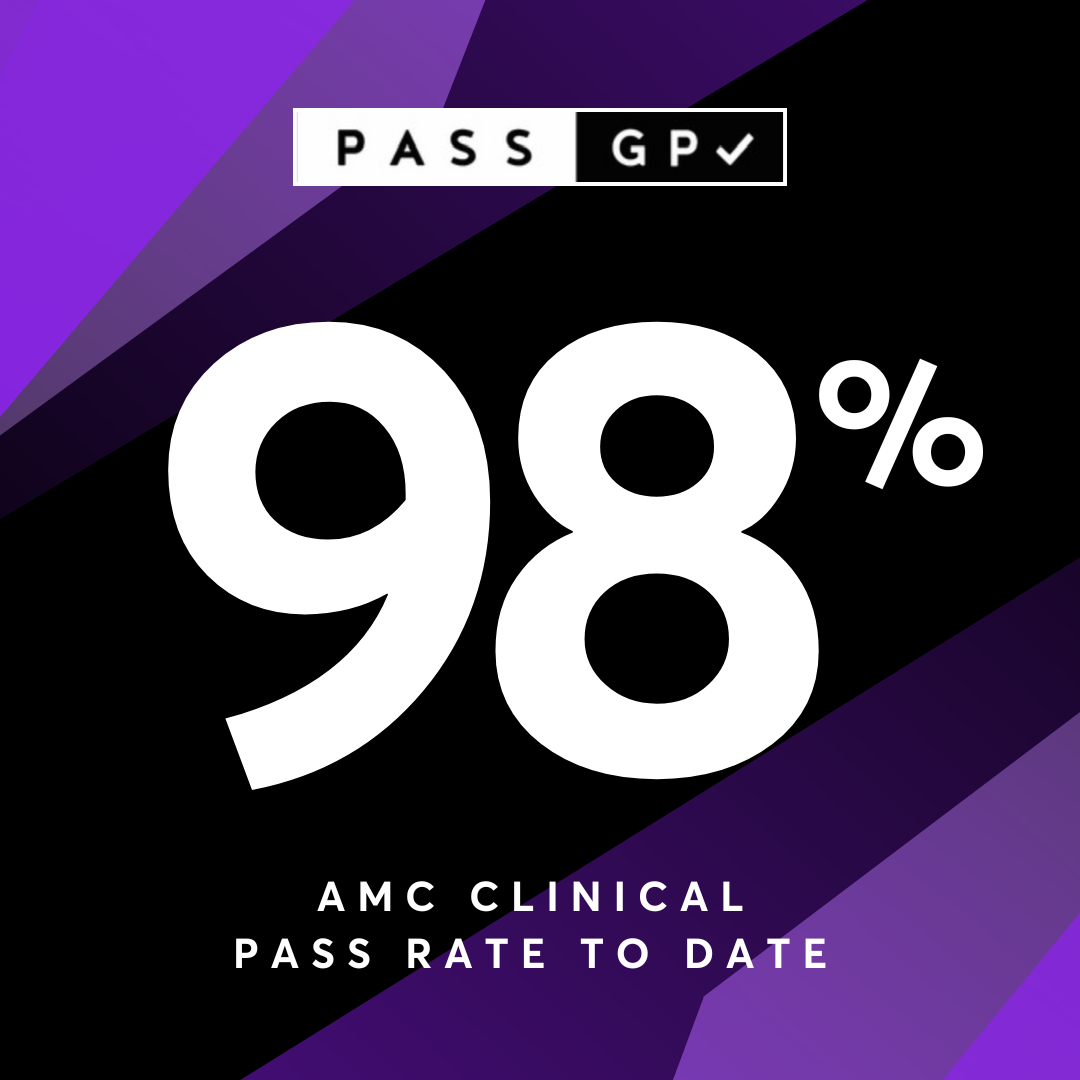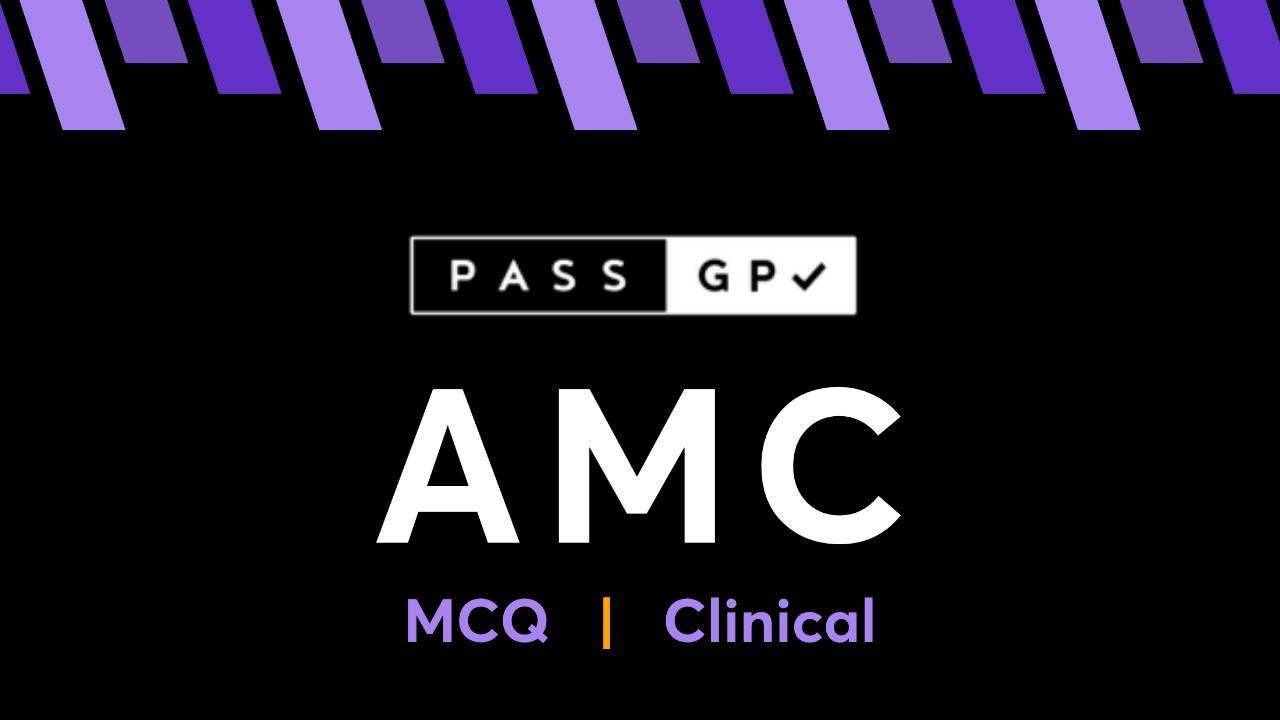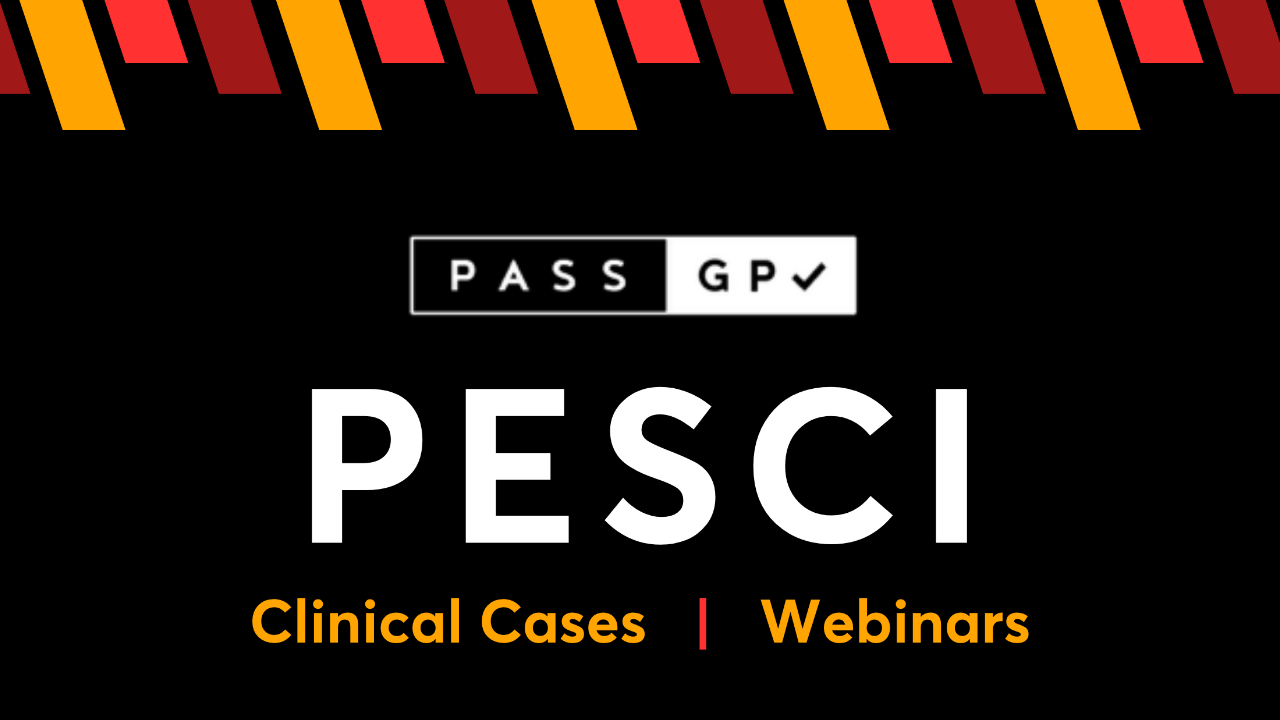The PassGP AMC MCQ & Clinical 2025 Strategy Guide
If you’re an International Medical Graduate (IMG) preparing to practise medicine in Australia, the Australian Medical Council (AMC) exams can feel confusing at first.
There are two major assessments:
- AMC Part 1 MCQ
- AMC Clinical Examination
Both are required for AHPRA registration - but they test very different skills and require very different preparation. As A/Prof George Eskander, former AMC examiner and Chief Examiner of PassGP, explains:
“Part 1 tests clinical thinking, Clinical tests clinical speaking. You need both to succeed in Australian healthcare.”
What You Need To Know About The AMC MCQ Exam
The AMC Part 1 Multiple Choice Question (MCQ) Exam is often the first formal hurdle for International Medical Graduates (IMGs) on the road to Australian registration.
And while thousands sit this exam each year, many candidates feel overwhelmed by:
- The vast syllabus
- The subtle tricks in clinical reasoning
- The pressure to ‘study everything’
But there’s a better way. At PassGP, we teach you how to think like an examiner - not just cram facts.
“This isn’t a content exam. It’s a clinical thinking exam,” says A/Prof George Eskander, Chief Examiner at PassGP and former AMC Clinical Examiner.
“Those who pass aren’t the ones who know the most - they’re the ones who apply knowledge in context.”
What Is the AMC MCQ Exam?
- 150 questions, computer-delivered
- Single-best-answer (SBA) format
- Covers medicine, surgery, paediatrics, O&G, psychiatry, and public health
- Pass mark typically 65%, but subject to equating
You get 3.5 hours - and only one scheduled break.
Smart Strategies to Succeed:
- Focus on High-Yield Topics First
Prioritise:
- Chest pain
- Abdominal pain
- Shortness of breath
- Paediatrics milestones
- Public health (e.g. vaccinations, screening)
- Psychiatry and risk management
Avoid deep-diving into rare conditions before you’ve mastered these.
- Think Like an Intern in Australia
AMC MCQ is grounded in safe, supervised practice. That means:
- What would you do on the ward in a public hospital?
- What’s safest - not flashiest?
- What would AHPRA expect?
Choose options that reflect:
- Patient-centred care
- Escalation and senior support
- Clear differentials and safe investigations
- Avoid the Trap of Overthinking
Many IMGs fail not due to lack of knowledge - but due to:
- Misreading the question
- Overthinking common presentations
- Choosing theoretically correct, but clinically unsafe answers
Tip from A/Prof Eskander:
“Always ask: what’s the most logical next step for a safe intern under AHPRA in Australia?”
- Master the Art of Elimination
Every question has:
- 1 best answer
- 1 plausible distractor
- 2-3 poor choices
You should be able to rule out at least two. If not, stop and reread the stem - not the options.
- Practise with Real Exam Format Questions
A common mistake is using non-Australian resources or flashcards that don’t mimic exam reasoning.
At PassGP, we build our AMC MCQ bank with:
- Australian-first guidelines
- Clinical logic that matches the exam
- Feedback by former AMC examiners
Our 1,500+ AMC MCQs include:
- Immediate answers and explanations
- Distractor rationales
- Access anytime via the mobile app
Final Tips from A/Prof Eskander
- Don’t study in isolation. Join a platform where you can ask, practise, and refine your approach.
- Do timed mock exams. Train your brain to perform under pressure.
- Focus on how to think, not just what to memorise.
What You Need To Know About The AMC Clinical Exam
For International Medical Graduates (IMGs), the AMC Clinical Exam is one of the most important - and stressful - milestones on the road to becoming a doctor in Australia.
Having mentored thousands of candidates, A/Prof George Eskander, Chief Examiner at PassGP and former AMC National Clinical Examiner, knows the patterns that trip up even the best-prepared doctors.
“It’s not just about knowledge. The AMC Clinical Exam tests your ability to think, speak, and connect - all within a strict time frame. And unfortunately, good doctors still fail when they focus on the wrong things.”
In this guide, we’ll unpack the 7 most common mistakes, how to fix them, and how PassGP can help you succeed.
- Talking AT the Examiner Instead of TO the Patient
Many IMGs memorise long recall answers and deliver a lecture to the examiner. This breaks the illusion of real communication.
Instead:
- Treat the examiner as a patient.
- Use real spoken English: “Can I just check what you’ve heard about your condition so far?”
- Don’t recite textbook lists. Speak like a doctor.
- Mismanaging Time
You only have 8 minutes per station. Candidates often:
- Spend 5 minutes on the history
- Rush through examination
- Skip the summary or management plan
Tip from A/Prof Eskander:
“You need to anchor yourself. 2 minutes for history. 2 for exam. 2 for management. 2 for discussion or reassurance.”
- Giving Too Much or Irrelevant Information
AMC cases are not about showing everything you know. They're about clinical prioritisation.
Instead:
- Address the presenting problem first.
- Give a clear differential diagnosis with reasons.
- Limit investigations to what’s appropriate in GP or ED context.
- Failing to Speak Your Reasoning Out Loud
If you don’t say it, it doesn’t exist. You are not being marked for silent thinking.
Use phrases like:
- “The reason I’m ordering this test is because I’m concerned about…”
- “One possible explanation is X, but I also want to exclude Y.”
- Missing Red Flags or Failing to Escalate
Many candidates forget to ask red flags - or fail to call for senior help when needed.
Always include:
- Red flags for pain, sepsis, cancer, trauma
- Escalation lines: “I’d speak to my senior, notify the ED registrar, and initiate urgent transfer.”
- Not Following Australian-Appropriate Guidelines
AMC expects you to practise as if you were an intern in Australia, under AHPRA standards.
You must:
- Use PBS drugs and doses
- Refer to local public health protocols
- Follow AHPRA principles of safe, culturally sensitive, and ethical care
Don’t say: “I would send them for malaria testing and give ACT.”
Say: “I would check recent travel, refer to ID protocol, and notify public health if required.”
- Not Practising Enough with Real People
AMC Clinical success requires real practice - not just watching videos or rehearsing alone.
PassGP offers:
- Mock exams that mimic the real AMC format
- Fully-scripted stations with spoken role-plays
- 1:1 feedback sessions with experienced AMC educators
AHPRA and the AMC Clinical Exam
Remember: the AMC Clinical Exam is designed to ensure that you meet AHPRA’s standards for provisional registration.
You must demonstrate:
- Safe, ethical, and legal practice in the Australian setting
- The ability to communicate respectfully with diverse patients
- Escalation, documentation, and cultural safety
A/Prof Eskander explains:
“Passing AMC isn’t about being perfect - it’s about showing that you're ready to practise safely under AHPRA's supervision. That means patient-centred care, clinical reasoning, and sound communication.”
How PassGP Helps You Succeed
At PassGP, we offer:
- Fully interactive AMC Clinical Cases based on real scenarios
- Detailed red flag checklists
- Patient-centred scripts written by former AMC Examiners
- Guidance on AHPRA-aligned communication and safety
Start your free trial at PassGP.au to practise like it’s the real thing.
Learn More About PassAMC ClinicalLeveraging Cognitive Science
The AKT is not just about content - it’s about performance under pressure.
PassGP is grounded in cognitive science: We use high-yield recall questions that strengthen long-term retention and clinical transfer, not passive recognition.
This means you’ll learn while you test—mastering the reasoning you’ll need in the real exam.




